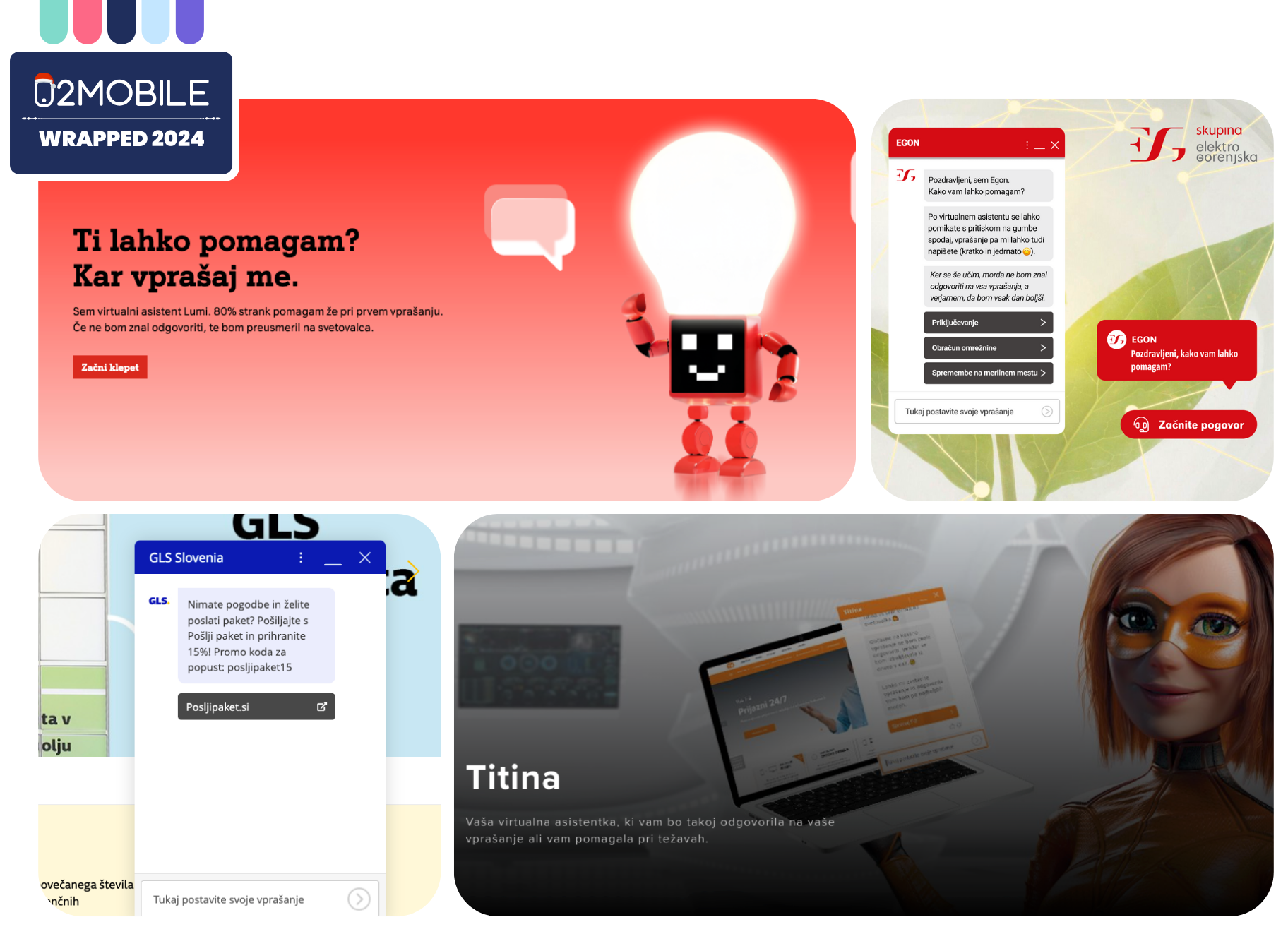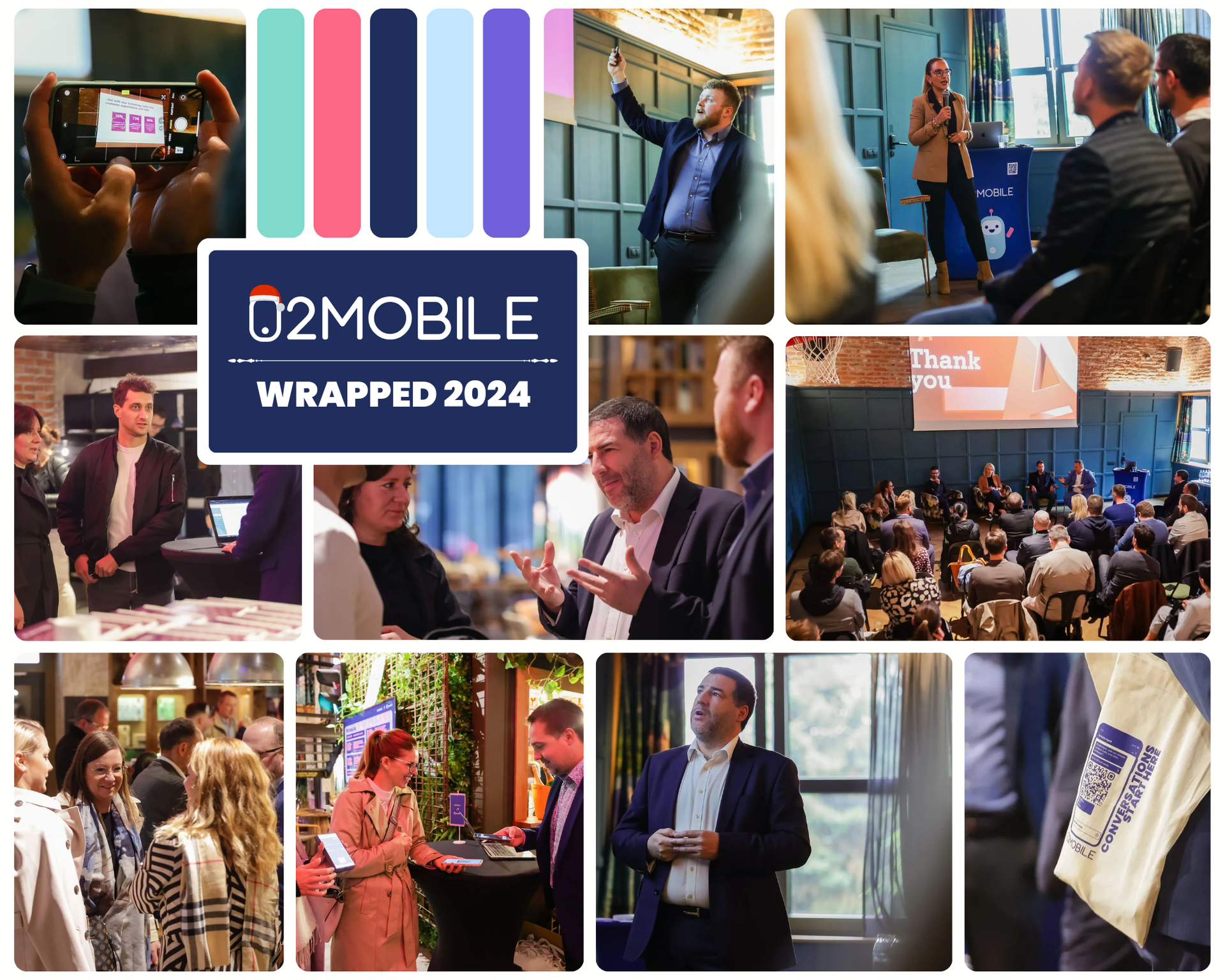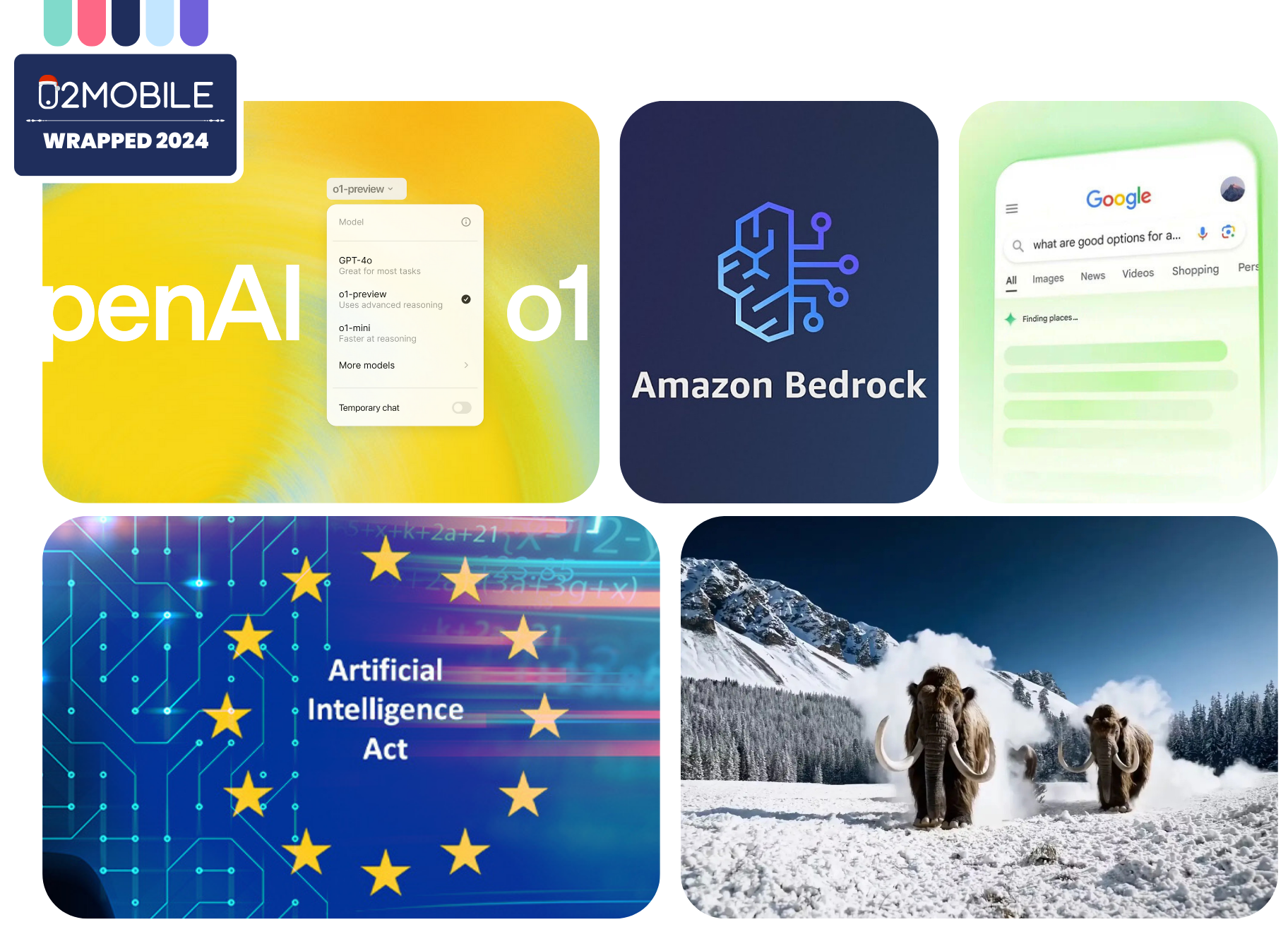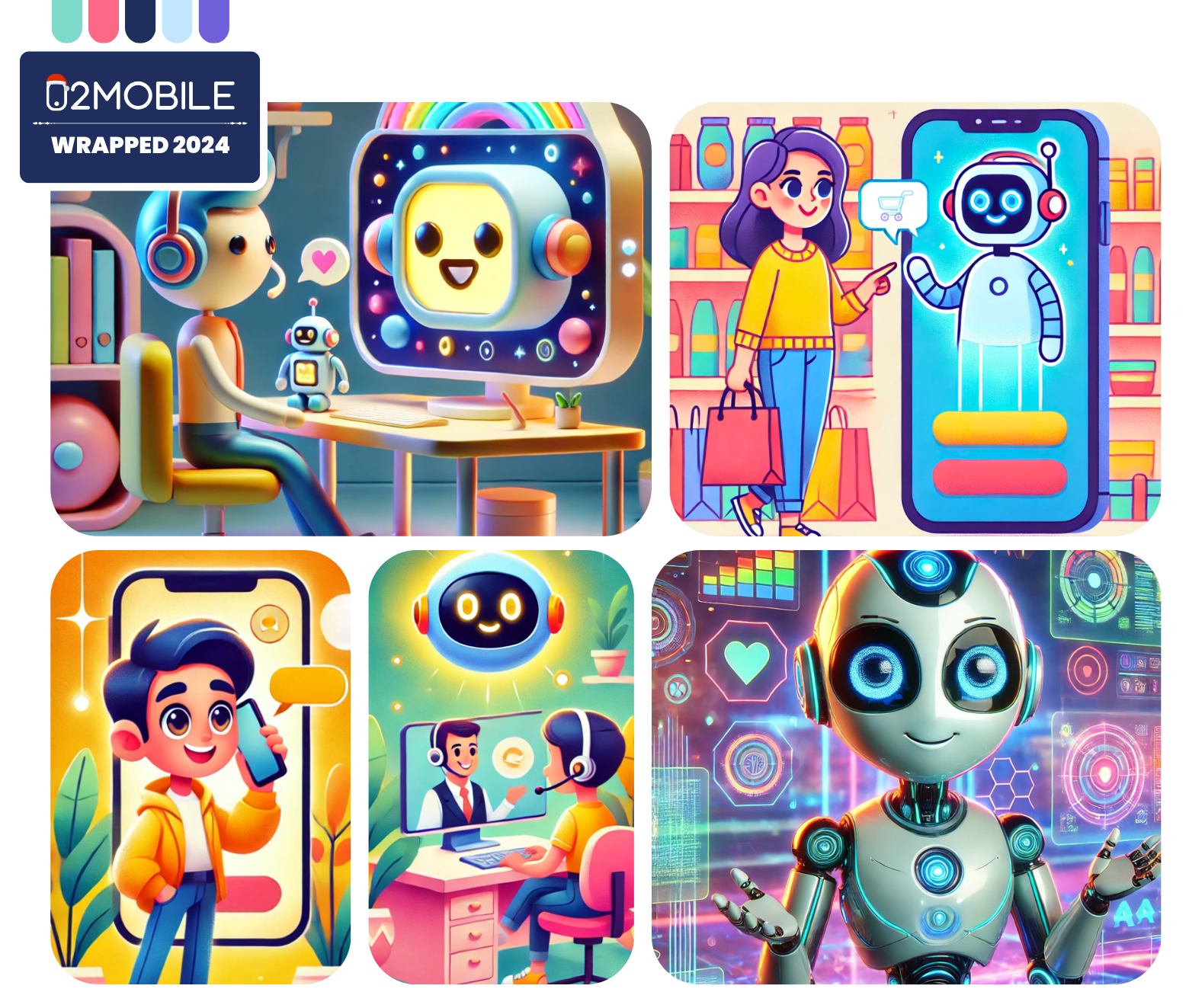2Mobile's key achievements for 2024 and what the use of AI promises in 2025
The year 2024 will be remembered as a breakthrough for all of us at 2Mobile, marked by new collaborations and advancements in the deployment of solutions powered by generative artificial intelligence. This year, AI has undoubtedly stood out with the development of many new models, not only as a technological milestone, but also as a transformative tool that is reshaping how we think, do business and, above all, enhance the user experience.
A heartfelt thanks to our team, partners such as Boost.ai and A1 Slovenia, and our subscribers for their trust and cooperation. Together, we are shaping the future of conversational commerce and improving the user experience. Your support enables us to achieve our goals. Technology empowers us build better, more efficient and connected lives. Let AI remain our inspiration and the tool that turns the impossible into reality in 2025.

Our key achievements in 2024
We closed the year by deploying artificial intelligence solutions for conversational call centre operations for four important customers - A1, T-2, GLS and Elektro Gorenjska. These projects were not only successfully completed, but we have worked with our clients to design new user experiences that are already having a significant impact on the business. At the event "Virtual agents: the coexistence of humans and AI", which drew more than 80 participants, we showcased real-life examples of what can be achieved using AI.
We have also successfully completed several mobile marketing projects, using SMS and Viber channels to help clients achieve their goals and improve communication efficiency.
Your positive responses to these applied solutions are an indication that we are on the right track.

AI trends in 2025
The year 2025 will bring a number of groundbreaking technologies that pave the way for a future with AI that is not just bright, but colourful and highly immersive. So what's in store for us in 2025?
- AI in video and content creation: Tools such as Sora, launched by OpenAI at the end of the year, enable the production of high-quality videos using artificial intelligence. Imagine the impact this will have on marketing, education and content creation in the future. Soon, businesses will be able to create personalised video campaigns in minutes.
- Thinking AI models: This year, OpenAI introduced a new model series (o1) that prioritises thinking over predicting. These models go beyond data analysis, independently proposing solutions to complex problems. In this context, they are increasingly replacing human mental work and allowing us to save time and mental energy, which I find valuable in an ever-accelerating world.
- AI in cloud services: Advanced infrastructures such as the AWS supercomputer will allow large language models to be trained faster and more efficiently. This technological leap forward will profoundly impact industries that rely on big data. While the rollout of supercomputers will certainly not happen overnight, it will fundamentally reshape many existing business models and create the opportunity to develop new technologies and services.
- AI as a search engine: Google already enhances its search results with AI-generated answers. This trend will further transform our user experience in 2025, with search engines offering more precise, personalised answers. We are entering the age of conversational search.
- Ethical AI and safety: With the increasing use of AI in sensitive sectors such as finance and healthcare, the development of standards for its responsible use is becoming a necessity. With the adoption of the AI Act, the European Union has addressed potential risks to citizens’ health, safety and fundamental rights while encouraging the development of innovative and responsible AI in the EU.

The future of call centre work
In the context of call centre operations, I find it important to highlight key trends that we’ve already begun implementing this year: multi-channel support, automation of monitoring and service quality improvement, and hybrid models, which combine AI and human agents.
The future of call centre work is undoubtedly multi-channel AI support. AI Will enable integrated communication through different channels such as web chat, email, social media and phone support. This will allow customers to move seamlessly between channels, with AI maintaining the context of the conversation to ensure a consistent and personalised experience.
In addition, AI automates the monitoring and improvement of service quality by analysing conversations between agents and customers, identifying patterns, and suggesting improvements. This enables companies to proactively improve service and increase customer satisfaction.
Hybrid models, where AI collaborates with human agents, allow AI to handle routine tasks while human agents focus on more complex and empathetic situations. AI can detect when extra help is needed and seamlessly transfer the interaction to a live agent, improving efficiency and customer satisfaction.
The fact is that artificial intelligence is no longer confined to science fiction. Imagine you’re visiting an online store. Instead of a traditional product search, AI guides you through the purchase journey, recommending the best products based on your preferences, while analysing your tone of voice or facial expressions (in the case of a video call) to personalise your interaction. Similar experiences can be expected in the future for other customer touchpoints in different industries. This technology is slowly becoming a reality, increasingly integrated into our everyday lives.


